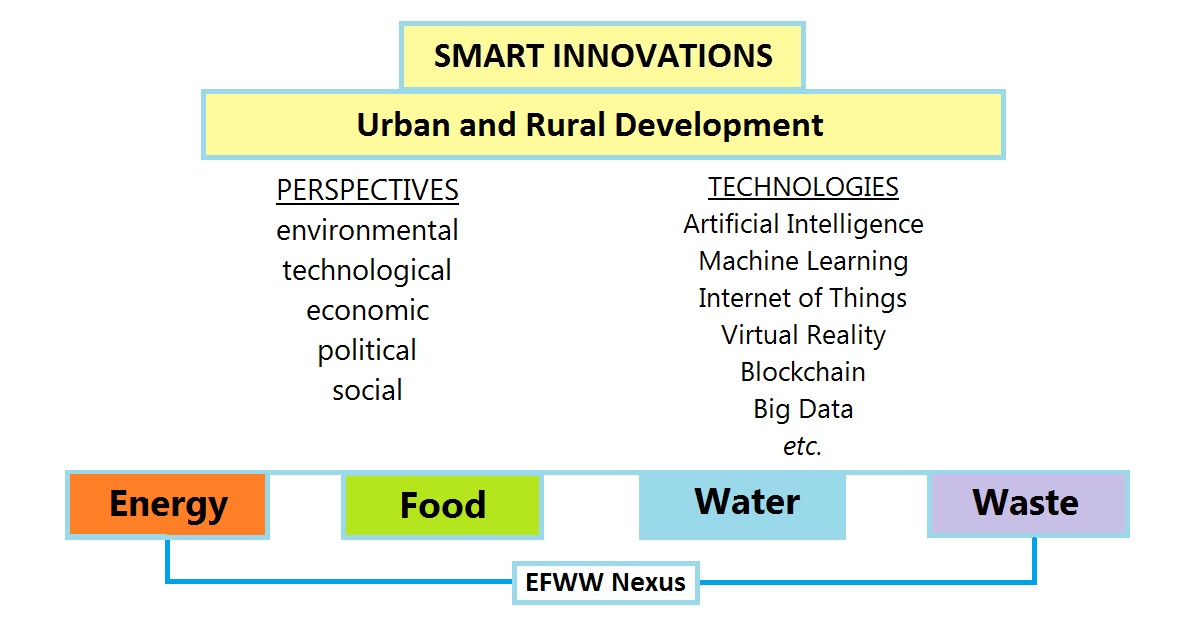Smart Innovations and the Energy–Food–Water–Waste Nexus in the Context of Sustainable Urban and Rural Bioeconomies
A special issue of Energies (ISSN 1996-1073). This special issue belongs to the section "C: Energy Economics and Policy".
Deadline for manuscript submissions: closed (30 June 2025) | Viewed by 478

Special Issue Editors
Interests: sustainable development; sustainable development of rural areas and agriculture; education for sustainable development; rural advisory services; agricultural knowledge and innovation systems (AKIS); diffusion and adoption of innovations in rural areas; multifunctional development of rural areas; entrepreneurship; non-agricultural entrepreneurship in rural areas; horizontal and vertical integration in the food sector and agriculture; formation and operation of agricultural producer groups
Special Issues, Collections and Topics in MDPI journals
Interests: sustainable development; precision agriculture; smart village; bioeconomy; disruptive technologies; smart city; smart energy
Special Issues, Collections and Topics in MDPI journals
Special Issue Information
Dear Colleagues,
Energy, food, water, and waste (EFWW) are the core resources that define human well-being and are prime topics of concern in the context of the sustainable development of urban and rural bioeconomies. These concerns are based on an inter-related EFWW nature, including often-competing stakeholder interests and continuously growing demands for energy, food, and water resources, as well as the environmental implications of waste overproduction
Smart innovations have significant potential in offsetting these concerns and boosting the effective and efficient use of EFWW in the context of the sustainable development of urban and rural bioeconomies, therefore supporting the transition of current cities and villages from the “resource sinks” to future resource “regenerative hubs” (Yang and Yang, 2022), contributing to the mitigation of diverging urban–rural developmental patterns.
The aim of this Special Issue is to explore the components, processes, challenges, and opportunities related to the application of smart innovations for the proper usage and management of EFWW in the context of urban and rural bioeconomies from various environmental, economic, social, and technological perspectives. We welcome empirically grounded and theoretically based research papers, reviews, and meta-analyses focused on recent developments and future prospects in this research field. Additionally, the wrap-up “editorial” will provide a synthesis of the papers published in this Special Issue, outlining the papers’ contributions to the research field and providing the Editor’s perspectives on future developments in this area.
Dr. Piotr Prus
Dr. Aksana Yarashynskaya
Guest Editors
Manuscript Submission Information
Manuscripts should be submitted online at www.mdpi.com by registering and logging in to this website. Once you are registered, click here to go to the submission form. Manuscripts can be submitted until the deadline. All submissions that pass pre-check are peer-reviewed. Accepted papers will be published continuously in the journal (as soon as accepted) and will be listed together on the special issue website. Research articles, review articles as well as short communications are invited. For planned papers, a title and short abstract (about 100 words) can be sent to the Editorial Office for announcement on this website.
Submitted manuscripts should not have been published previously, nor be under consideration for publication elsewhere (except conference proceedings papers). All manuscripts are thoroughly refereed through a single-blind peer-review process. A guide for authors and other relevant information for submission of manuscripts is available on the Instructions for Authors page. Energies is an international peer-reviewed open access semimonthly journal published by MDPI.
Please visit the Instructions for Authors page before submitting a manuscript. The Article Processing Charge (APC) for publication in this open access journal is 2600 CHF (Swiss Francs). Submitted papers should be well formatted and use good English. Authors may use MDPI's English editing service prior to publication or during author revisions.
Keywords
- energy–food–water–waste (EFWW) nexus
- effective and efficient EFWW use
- biofuels and bioenergy
- smart innovations
- AI, big data, IoT, machine learning
- EFWW nexus in urban and rural areas
- EFWW nexus policy
- EFWW nexus economics
Benefits of Publishing in a Special Issue
- Ease of navigation: Grouping papers by topic helps scholars navigate broad scope journals more efficiently.
- Greater discoverability: Special Issues support the reach and impact of scientific research. Articles in Special Issues are more discoverable and cited more frequently.
- Expansion of research network: Special Issues facilitate connections among authors, fostering scientific collaborations.
- External promotion: Articles in Special Issues are often promoted through the journal's social media, increasing their visibility.
- Reprint: MDPI Books provides the opportunity to republish successful Special Issues in book format, both online and in print.
Further information on MDPI's Special Issue policies can be found here.






